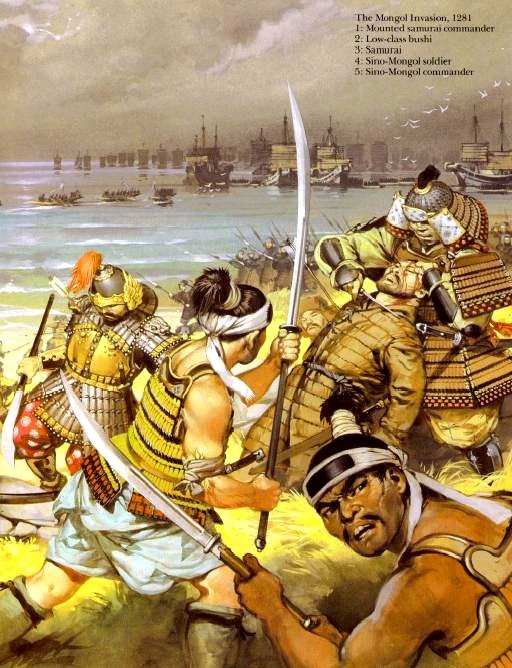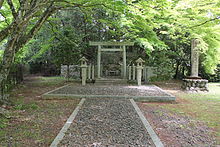
Mongol invasion, 1281 (courtesy Deviantart)
For a poetry project I’m involved with, I happened to take a look at developments in the Muromachi Era (1333-1573) the other day. As a preliminary step I turned to Wikipedia and was surprised to find a small section on Shinto, which was unexpected. The period is known for the development of Zen culture in Japan (see my recent book Zen Gardens and Temples of Kyoto).
As is well-known by now, Wikipedia entries can vary in quality from uninformed amateurish efforts to polished professional pieces. The entry here on Shinto in the Muromachi period seemed so authoritative and credible that it made me think it must be the input of a Shinto scholar specialising in the period. Intriguing to think who it might be!

Kitabatake Chikafusa (1293-1354)
The emphasis on Shingon Buddhism is noteworthy, and I’ve often heard it said that the esoteric branch of Japanese Buddhism is closest to Shinto in its embrace of nature and worship of spirits. Also of interest is the emphasis given to the Mongol invasions in sparking a nationalist feeling in Shinto, and the role of Kitabatake Chiakfusa in asserting the divine descent of the emperor and the consequent need for loyalty and submission. Both elements were taken up late in the Edo period by the Kokugaku thinkers.
Here is the Wikipedia section, which is succinct and insightful….
There was renewed interest in Shinto, which had quietly coexisted with Buddhism during the centuries of the latter’s predominance. Shinto, which lacked its own scriptures and had few prayers, had, as a result of syncretic practices begun in the Nara period, widely adopted Shingon Buddhist rituals. Between the eighth and fourteenth centuries, Shintoism was nearly totally absorbed by Buddhism, becoming known as Ryōbu Shinto (Dual Shinto).
The Mongol invasions in the late thirteenth century, however, evoked a national consciousness of the role of the kamikaze in defeating the enemy. Less than fifty years later (1339–43), Kitabatake Chikafusa (1293–1354), the chief commander of the Southern Court forces, wrote the Jinnō Shōtōki. This chronicle emphasized the importance of maintaining the divine descent of the imperial line from Amaterasu to the current emperor, a condition that gave Japan a special national polity (kokutai). Besides reinforcing the concept of the emperor as a deity, the Jinnōshōtōki provided a Shinto view of history, which stressed the divine nature of all Japanese and the country’s spiritual supremacy over China and India.

Kitabatake Chikafusa’s grave. An important site for emperor-centred Shintoists.

Leave a Reply